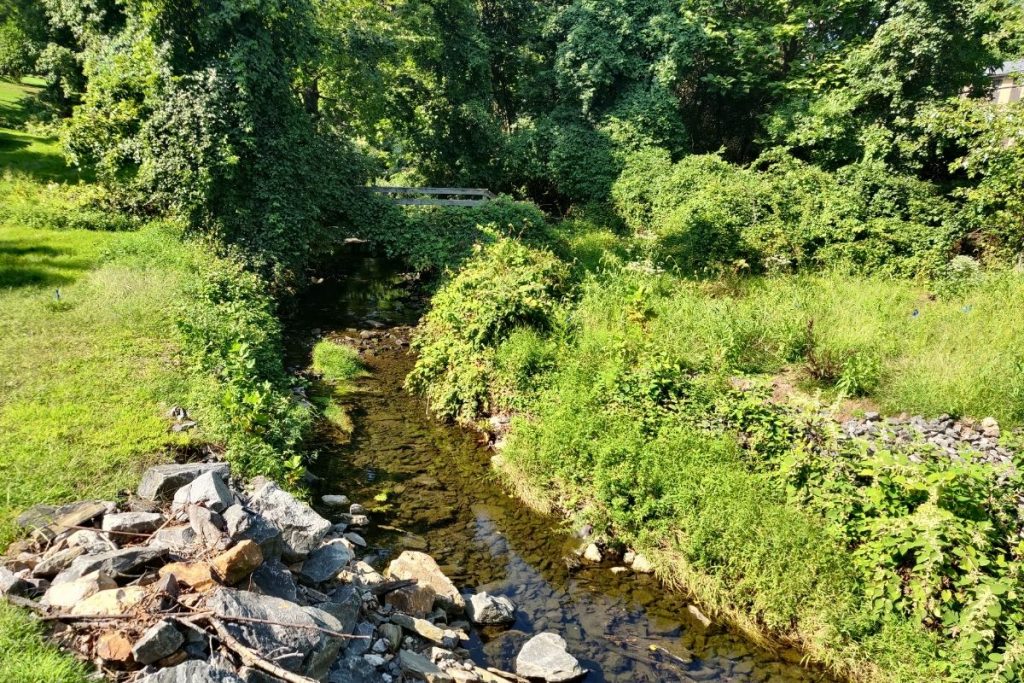The moment I stepped out of Dalton after declaring my Environmental Studies major, I was already daydreaming about the wealth of exciting opportunities that were now available to me.
My heart swelled with happiness as I researched study abroad programs in Australia, browsed 360° Program clusters, and made plans to enroll in a Praxis course. While I was fortunate enough to participate in the Fall 2019 Borderlands 360° and spend two weeks studying in Yunnan, China, the COVID-19 pandemic took hold the following semester and threw a wrench in the remaining plans I’d made for my time at Bryn Mawr.
What felt most disheartening was that I’d likely be unable to participate in my major’s Praxis course and engage in weekly fieldwork. While I thoroughly enjoy reading about topics ranging from soil science to environmental justice in my classes, my heart was invested in the experiential possibilities—and I wanted more than anything to learn from and work with the Philadelphia community.
My initial expectation was that courses requiring travel or community engagement would be canceled for Fall 2020, but I was surprised to discover that ENVS 204: Place, People and Praxis in Environmental Studies was still open for enrollment. While I knew that the course would look radically different due to Bryn Mawr’s COVID-19 rules, the existence of the listing was an encouraging sight. I could still build relationships with organizations and members of the Philadelphia community if I wanted to, albeit digitally!
After much deliberation, I decided to enroll in the course despite pandemic limitations—and I don’t regret my decision. While I was initially concerned about our ability to do relevant, purposeful work, I felt more optimistic after learning the specific details of our semester-long project. We would be consulting with LandHealth Institute to develop a stewardship organization proposal for Cobbs Creek, which links Haverford’s campus to Philadelphia.
 Photo: Section of Cobbs Creek near Haverford College, courtesy of Chengpei Li (HC ‘22)
Photo: Section of Cobbs Creek near Haverford College, courtesy of Chengpei Li (HC ‘22)
In one of our early class meetings, we decided to delegate responsibilities according to our individual interests. This means some of my peers are exercising their scientific chops by evaluating the ecological health of the creek, others are using GIS technology to map stakeholders that would benefit from a stewardship organization, and my group is responsible for documenting the history of Cobbs Creek.
While the organizational structure I described might sound flawless, this isn’t necessarily the reality. This is the first time many of us have had to navigate project management, and there are plenty of unknowns that we tackle each week. Luckily our professor, Joshua Moses at Haverford, keeps us grounded when our efforts feel disorganized or overwhelming. He also frequently invites local community leaders to speak to us about project management, water quality, Philadelphia history, and other topics, which helps us to recenter our perspectives in an ever-evolving learning environment.
All of these shared insights and background research will be put to use this week, as my team is developing an annotated bibliography with historical context for the proposal. I’m hoping that the information we’ve gathered will paint a comprehensive picture of Cobbs Creek—and most importantly, address the concerns of the socioeconomically and racially diverse communities that the Cobbs flows through.
While developing an extensive narrative of the creek’s past, present, and future has been difficult without the ability to visit sites and speak to stakeholders in person, we’ve learned invaluable lessons on adaptability in what is now a primarily online working world. Despite the obstacles we’ve encountered, I take pride in knowing that my peers and I share a unified goal to build a proposal that locals see promise in.
As long as we continue to march forward, share our knowledge, and assert our investment in the well-being of the greater Philadelphia community, I have no doubt that we’ll accomplish something we’re proud of—pandemic hurdles and all.
